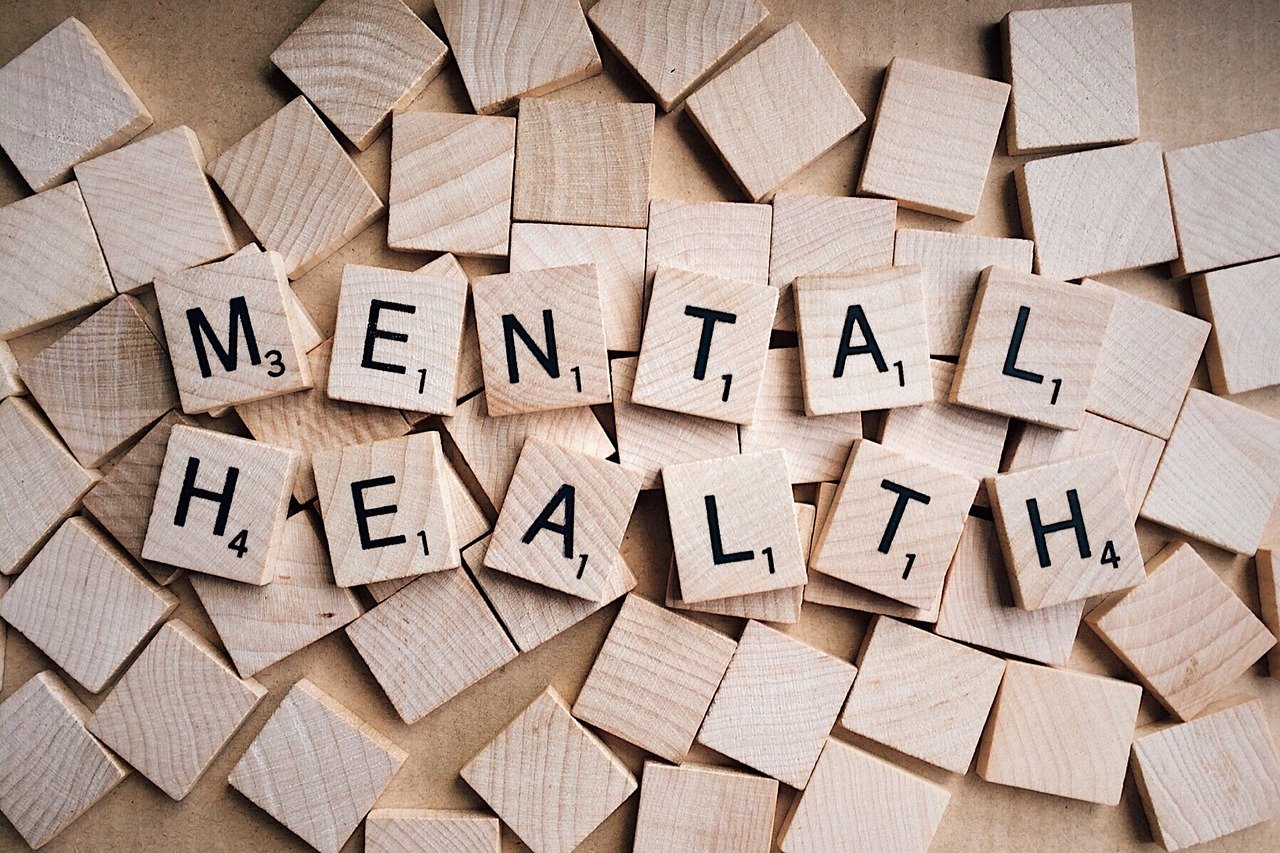What Are the Best Strategies for Enhancing Mental Health ?
Mental health is key to our overall well-being. It affects how we think, feel, and act every day. It’s important to focus on mental wellness to keep our emotions balanced and our minds sharp. By using the right strategies, we can boost our mental health and live better lives.
Self-care is a big part of mental health. Simple steps like managing stress, staying active, and taking care of our emotions can really help. This article will look at different ways to support mental wellness. It aims to help you build a healthier mind and a more rewarding life.
Key Takeaways
- Mental health is vital for overall well-being and daily functioning.
- Self-care practices are essential for maintaining emotional balance.
- Stress management techniques can improve mental wellness.
- Physical activity supports both mental and cognitive health.
- Building emotional resilience enhances long-term mental health.
Understanding the Foundations of Mental Health
Mental health is key to a happy and balanced life. It’s important to know what makes it strong. Mental wellness, thinking skills, and brain health all play a part. They help us think, feel, and connect with others.
Defining Mental Wellness
Mental wellness is more than just not being sick. It’s about feeling good, staying positive, and handling stress well. It also means keeping our thinking sharp, so we can learn, solve problems, and make smart choices.
The Mind-Body Connection
Our feelings and thoughts affect our body’s health. Stress can make us sick, but happiness can make us healthier. This shows how vital it is to care for both our mind and body.
Recognition of Mental Health Warning Signs
Spotting mental health issues early is very important. Signs might be feeling sad all the time, sleeping too much or too little, or having trouble focusing. Catching these signs early helps prevent bigger problems.
Learning about these basics helps us improve our mental health. This way, we can live a better life.
The Role of Physical Exercise in Mental Wellness
Physical exercise is more than just staying fit. It’s key to mental wellness. Regular activity can lower stress, anxiety, and tension. It releases endorphins, which make us feel better.
Exercise helps keep emotions balanced. It’s a way to deal with feelings and control mood swings. By exercising, you care for yourself, which is vital for mental health. Even small actions, like stretching or taking stairs, help.
Here are some ways exercise supports mental wellness:
- Reduces symptoms of depression and anxiety
- Improves sleep quality, which is crucial for mental health
- Enhances focus and cognitive function
- Provides a sense of accomplishment and boosts self-esteem
Simple activities like walking, stretching, or engaging in sports can contribute to enhancing mental health effectively.
Nutrition and Its Impact on Mental Health
What we eat affects our mental health. Eating right supports our brain and helps us stay mindful. Making smart food choices is key to emotional balance.
Brain-Boosting Foods
Some foods boost brain function. Add these to your meals for better thinking:
- Fatty fish: Full of omega-3s, good for the brain.
- Blueberries: Rich in antioxidants that protect the brain.
- Nuts and seeds: Give essential nutrients for clear thinking.
Dietary Patterns for Emotional Balance
Eating a balanced diet helps stabilize mood. The Mediterranean diet is a great example. It focuses on whole grains, lean proteins, and healthy fats. This diet supports brain health and promotes mindful eating.
Hydration and Mental Clarity
Drinking enough water is key for focus and mental clarity. Dehydration can make us tired and less sharp. Drink lots of water to stay alert and focused.
By focusing on nutrition, we can improve our mental health. Small, mindful diet changes can make a big difference in how we feel and think.
Essential Strategies for Mental Health Improvement
Improving mental health needs a mix of practical steps that help both the mind and body. Therapy is a great way to safely explore feelings and challenges. It helps people find ways to cope and understand their mental health better.
Another important strategy is to keep the brain active with puzzles, reading, or learning new things. These activities make the brain sharp and improve mental health. Adding mindfulness to cognitive training helps manage stress and stay calm.
“Taking small, consistent steps toward mental health can lead to significant, lasting improvements.”
Here are some key strategies to think about:
- Engage in therapy to address emotional challenges and build resilience.
- Stimulate cognitive function with brain-boosting activities and learning.
- Practice mindfulness and meditation to maintain emotional balance.
By adding these strategies to daily life, people can improve their mental health. Whether through therapy, brain exercises, or mindfulness, each method is crucial for emotional balance and well-being.
Mindfulness and Meditation Techniques
Adding mindfulness and meditation to your daily life can change your mental health for the better. These practices are key for self-care and managing stress. They help you stay calm and focused. Whether you’re new to meditation or want to improve, these methods can bring peace and balance to your life.
Getting Started with Meditation
Meditation is simple to begin. Just start with five minutes a day. Find a quiet spot, sit comfortably, and concentrate on your breath. Apps like Headspace or Calm can help beginners. With time, this can lower stress and boost mindfulness.
Breathwork Exercises
Breathwork is a strong tool for managing stress. Try the 4-7-8 method: breathe in for 4 seconds, hold for 7, and breathe out for 8. This easy exercise can calm your nerves and sharpen your focus.
Mindful Living Practices
Mindfulness isn’t just about meditation. Activities like yoga, tai chi, or mindful walking also count. These practices promote self-care by keeping you in the moment and connected to your body and surroundings.
“Mindfulness is the aware, balanced acceptance of the present experience.” – Sylvia Boorstein
By adding these mindfulness and meditation techniques to your routine, you can lead a healthier, more balanced life. Begin small, stay regular, and see how these practices change your mental health for the better.
Building Strong Social Connections
Strong social connections are key to good mental health. Having supportive people around can make life easier. It also keeps your mind sharp and active.
Being social is good for your brain. It can even help prevent memory loss as you get older. Every laugh or deep talk is important.
Here are simple ways to strengthen your social connections:
- Join community groups or clubs that align with your interests.
- Schedule regular catch-ups with friends or family.
- Volunteer for causes you care about to meet like-minded people.
- Practice active listening to deepen your relationships.
By focusing on social connections, you boost your mental health. You’re investing in a happier, healthier future. Start small, and see how these relationships make your life better.
Professional Support and Therapy Options
Getting professional help is a big step towards better mental health. Therapy is a safe place to talk about feelings, learn new skills, and grow stronger. It helps with stress, anxiety, and other tough times.
Types of Mental Health Support
There are many types of support for different needs:
- Individual therapy: Private sessions with a trained therapist.
- Group therapy: Sharing experiences in a supportive group.
- Online support: Virtual sessions for easy access.
When to Seek Professional Help
Knowing when to get help is important. Feeling sad all the time, struggling with daily tasks, or having trouble with relationships are signs you might need help. Getting help early can stop problems from getting worse.
Finding the Right Mental Health Professional
Finding the right therapist is crucial. Look for licensed experts who know about your specific issues. A good therapist builds trust and helps you grow mentally.
“Therapy is not about fixing what’s broken; it’s about uncovering the strength within you.”
Choosing to go to therapy is a positive step for your mental health. With the right support, you can face life’s challenges with confidence and clarity.
Creating Healthy Daily Routines
A structured daily routine can significantly improve mental well-being by reducing stress and fostering emotional stability.
Creating a daily routine is a great way to support your mental health. It helps you manage stress and keep your emotions balanced. A routine gives you a sense of stability, especially when things are uncertain.
“Small, consistent habits can lead to significant improvements in mental well-being.”
- Start your day with mindfulness or meditation to set a positive tone.
- Incorporate physical activity, even if it’s just a short walk, to boost mood and energy.
- Schedule time for self-care activities, such as reading, journaling, or a relaxing bath.
- Connect with loved ones to strengthen social bonds and reduce feelings of isolation.
- End your day with a calming bedtime ritual to improve sleep quality.
Adding these habits to your routine can improve stress management and emotional balance. Remember, small changes can make a big difference for your mental health.
Conclusion: Implementing Your Mental Health Strategy
Taking charge of your mental health is a big step toward a better life. By adding exercise, mindfulness, and social connections, you build a strong mental wellness base. Small, regular steps in these areas can really boost your mind and emotions.
Getting help from professionals is key. Therapy, counseling, or coaching can offer valuable insights and tools. Remember, mental health is a journey, not a finish line. It needs patience and kindness to yourself.
Begin by adding one or two strategies to your daily life. Slowly grow these habits into a mental health plan that’s yours. Celebrate every small win and keep working on your well-being. Investing in your mental health means a happier, healthier you.
FAQ
What are the key components of mental wellness?
Mental wellness is about feeling emotionally balanced and having good brain health. It’s about connecting our minds and bodies. It also means knowing when we might need help with our mental health.
How can physical exercise benefit mental health?
Exercise can lower stress and anxiety. It helps us feel emotionally balanced and takes care of our minds. It’s a great way to stay healthy and feel good.
What role does nutrition play in supporting mental health?
What we eat affects our brain and thinking skills. Eating foods that are good for our brains helps our mental health. Drinking enough water is also important.
What are some essential strategies for improving mental health?
Important steps include getting therapy and doing brain exercises. Mindfulness and meditation help too. They help us relax and feel better.
How can mindfulness and meditation techniques enhance mental health?
Mindfulness and meditation reduce stress and help us relax. They help us care for ourselves and feel emotionally balanced. Practices like breathwork and living mindfully also help.
Why are strong social connections important for mental health?
Having good friends and family helps our minds and brains. It keeps our thinking sharp and reduces the risk of mental decline.
When should someone seek professional mental health support?
If you’re struggling with your mental health and it’s affecting your life, get help. A mental health professional can offer a safe space to talk about your feelings.
How can creating a healthy daily routine benefit mental health?
A daily routine that includes self-care and stress management helps. It gives us a sense of order and stability, especially when things are uncertain.



